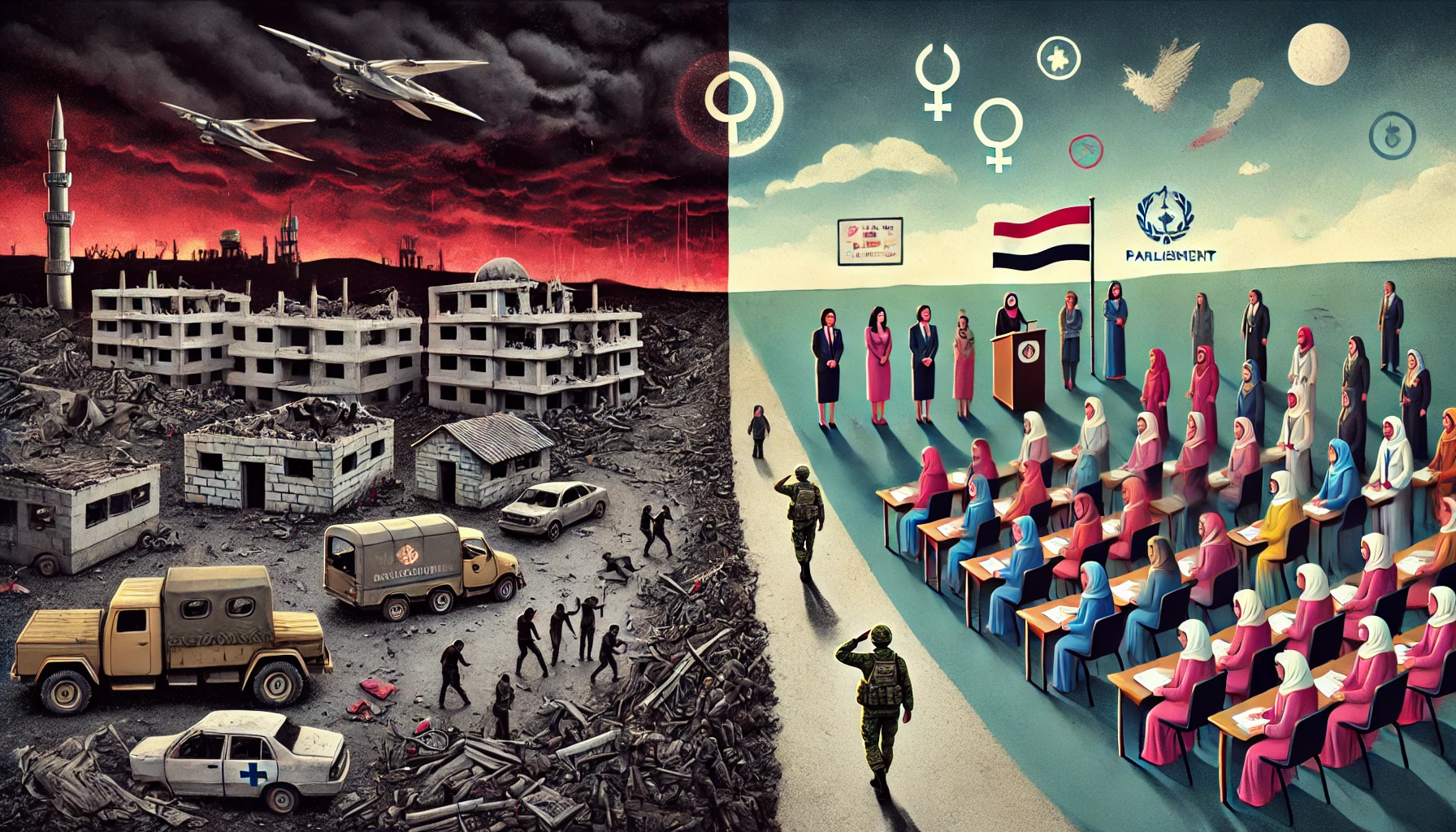Gender Inequality and Conflict: How Wars Deepen Global Disparities and Stall Growth
The IMF study reveals that violent conflicts exacerbate gender inequality in education, health, and legal opportunities, worsening economic stagnation and global disparities. It emphasizes the urgent need for targeted interventions to empower women and foster inclusive recovery in conflict-affected regions.

The International Monetary Fund (IMF) has released a pivotal working paper, authored by Paola Ganum and Can Sever. Conducted by the IMF's African and Strategy, Policy, and Review Departments, this research delves into how violent conflicts ranging from interstate wars to civil unrest exacerbate gender inequalities and impede economic development. While previous studies have focused on conflicts’ broader social and economic consequences, this paper shines a light on the disproportionately severe impact on women and girls, revealing how conflicts undermine progress in gender equality and create long-lasting developmental challenges.
Conflicts Amplify Gender Disparities in Key Areas
The study finds that violent conflicts lead to heightened gender inequality across various outcomes, including education, political representation, and health. For instance, female enrollment in primary education drops significantly during and after conflicts. The decline is driven by factors such as school closures, displacement, and economic shocks, which force families to prioritize boys’ education over girls’. Though secondary and tertiary education appear less immediately impacted, the long-term effects of reduced primary enrollment could result in diminished opportunities for women in higher education and employment. Similarly, the share of women in parliament declines by approximately 1.5 percentage points following conflicts, reflecting how gender roles, often reinforced during wars, limit women’s participation in political decision-making.
Health outcomes are also deeply affected. Maternal mortality rates rise sharply in conflict-affected regions, as a result of the destruction of healthcare infrastructure and limited access to maternal and reproductive care. These challenges exacerbate existing health inequalities, disproportionately impacting women. While adolescent fertility rates did not show immediate increases, the study suggests that reduced access to education could eventually lead to higher rates of teenage pregnancies, further entrenching cycles of poverty and inequality.
Legal Inequality and Missed Opportunities for Women
Beyond measurable outcomes, conflicts exacerbate gender inequality in opportunities, particularly in legal rights. Using data from the World Bank’s Women, Business, and the Law (WBL) database, the research highlights how conflicts hinder progress in gender equality under the law. Countries affected by violence experience significant setbacks in women’s economic rights, including mobility, marriage, and entrepreneurship. On average, gender equality in legislation declines by 2.5 points on the WBL index in the years following a conflict. These setbacks impede women’s access to financial resources and economic participation, further entrenching systemic inequality.
The findings underscore how legal barriers prevent women from fully participating in post-conflict recovery. For instance, limited mobility and entrepreneurship rights hinder women’s ability to rebuild livelihoods, locking them out of economic opportunities. These legal inequalities not only stall progress toward gender parity but also weaken the overall resilience and recovery potential of societies emerging from conflict.
Economic Growth Suffers from Gender Inequality
The study identifies a self-reinforcing cycle between conflict-induced gender inequality and economic stagnation. Countries with higher gender disparities experience slower economic growth, as the exclusion of women from the workforce, education, and political leadership limits the productive capacity of society. For example, in countries with lower gender inequality, GDP growth rates are approximately 2.4% per annum compared to 1.5% in nations with higher disparities.
Conflicts further exacerbate these challenges, leading to long-term reductions in GDP per capita. The paper shows that economic recovery is slower in conflict-affected countries, particularly those with entrenched gender inequalities. The destruction of infrastructure and social services, combined with limited female participation in rebuilding efforts, creates a persistent drag on growth. Addressing gender disparities in conflict-affected regions is therefore critical not only for achieving social equity but also for fostering sustainable economic development.
Bridging the Global Gender Gap in Conflict Zones
A notable finding of the research is how conflicts widen global gaps in gender equality. Countries affected by violence fall further behind their peers in achieving gender parity, particularly in education, political representation, and health outcomes. This divergence is most pronounced in Sub-Saharan Africa, where conflicts are frequent, and existing gender disparities are significant. The research highlights that the standard deviation of gender inequality indices widens in years following conflicts, suggesting that countries with frequent violence are losing ground relative to others.
The persistence of these gaps underscores the need for targeted interventions. Addressing gender inequality in conflict-affected regions requires comprehensive strategies that focus on rebuilding education systems, healthcare infrastructure, and legal protections for women. Efforts must prioritize the inclusion of women in peacebuilding and recovery processes, recognizing their critical role in fostering societal resilience and progress.
An Urgent Call for Global Action
The IMF paper concludes with a strong call for action, emphasizing the importance of addressing gender inequality as part of conflict recovery strategies. The findings have heightened relevance in the post-pandemic era, as COVID-19 has disproportionately affected women by increasing caregiving burdens, reducing workforce participation, and exposing them to higher risks of gender-based violence. These challenges compound the vulnerabilities already faced by women in conflict zones, further delaying progress toward gender equality.
Policymakers are urged to integrate gender considerations into post-conflict recovery frameworks. Investments in education, healthcare, and legal reforms are essential for empowering women and fostering equitable growth. Global cooperation is needed to address the structural barriers faced by women in conflict-affected regions, ensuring that recovery efforts promote inclusivity and resilience.
By shedding light on the interplay between conflicts and gender inequality, the IMF paper makes a compelling case for prioritizing gender equality as a cornerstone of sustainable development. It underscores the critical role of women’s empowerment in building more equitable and prosperous societies and highlights the urgent need for coordinated global efforts to address these challenges. Without targeted action, the cycle of inequality and conflict risks perpetuating itself, leaving millions of women and girls trapped in systems that limit their potential.
- FIRST PUBLISHED IN:
- Devdiscourse










